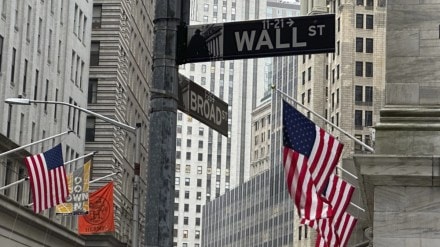US stocks fell sharply on Thursday, led by a decline in tech stocks as the end of the longest-ever 43-day US government shutdown was met by concern from investors.
While the S&P 500 lost $800 billion in market cap, Dow Jones tumbled at least 800 points. The Nasdaq fell, driven by declines in giants like Nvidia, Broadcom, and Alphabet.
Why did the US market crash?
As per reports, the crash has primarily been attributed to a correction in overvalued technology stocks and diminishing investor hopes for a Federal Reserve interest rate cut in December 2025.
Additionally, key economic data such as jobs and inflation reports were delayed or missing due to the government shutdown, adding to the cautious mood on Wall Street.
US President Donald Trump’s economic advisor Kevin Hassett said that the jobs data for October 2025 will be partially released, providing an estimate of the number of new jobs created, but it will not include the unemployment rate for that month.
Hassett highlighted that the government was unable to collect enough accurate data to determine the unemployment rate for October due to the shutdown, which prevented key surveys, Bloomberg reported.
He emphasised that while the data will be incomplete and less accurate than usual, partial information would still help in assessing the economy’s state during that period.
AI to blame?
The crash was also driven by a sharp sell-off in stocks connected to artificial intelligence (AI) investments.
Investors began to fear an AI bubble burst, which led to a significant correction in the valuations of major tech companies including Microsoft, Oracle, and Palantir, US News & World News reported.
Oracle’s stock, for instance, crashed by 25% in one month as concerns arose about its debt-fuelled expansion plans and significant losses related to its AI/cloud infrastructure investments, possibly linked to OpenAI commitments.
Prominent voices in finance, including veteran investor Mark Mobius and Goldman Sachs CEO David Solomon, warned of a potential correction of up to 40% in AI stocks due to overvaluation, Economic Times reported.
